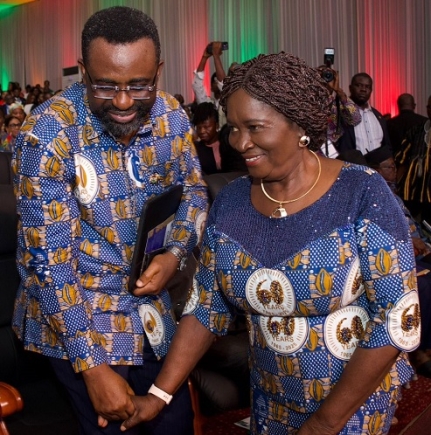Ghana on Tuesday celebrated six decades of the national currency, the Cedi, in a ceremony that attracted some of the country’s most prominent leaders in finance and governance.
Read also: Cedi hits 60th milestone - Vice-President calls for safeguarding currency's integrity
The milestone event was graced by the Vice President, Professor Jane Naana Opoku-Agyemang, the Minister of Finance Dr. Cassiel Ato Forson, and the Governor of the Bank of Ghana (BoG), Dr. Johnson Pandit Kwesi Asiamah.
In a social media post, Nana Yaw Sarpong, Deputy General Secretary of the United Party (UP+), commended the Bank of Ghana Governor and other key economic managers for what he described as a “renewed confidence in the Cedi” and a “steady appreciation against the dollar in recent months.”
“Initially, I asked myself, why celebrate the Cedi at 60? But after some reflection, it actually makes sense,” Sarpong wrote. “We are getting a few things right as a nation — the steady appreciation of the Cedi, the welcomed ‘rain down’ of inflation, the return of investor trust, and signs of stability and growth. Ayekoo to Ghana, and especially to the Bank of Ghana.”
The Cedi, which has endured one of its most turbulent decades in recent history, appears to be regaining some strength after years of steep depreciation and economic uncertainty.
Between 2015 and 2023, the local currency lost significant value against major trading currencies, particularly the US dollar, driven by global shocks, fiscal slippages, and a pandemic-battered economy.
At the anniversary ceremony, speakers paid tribute to the resilience of Ghana’s financial institutions and called for continued vigilance to consolidate the gains.
Governor Johnson Asiamah reiterated the central bank’s commitment to maintaining stability, noting that the strength of a currency reflects the strength of the nation’s discipline, productivity, and unity of purpose.
While challenges remain, Tuesday’s celebration served as both a reflection of Ghana’s economic journey and a reminder of the need for sustained reforms.
“There is still more work ahead, but for now, let’s celebrate the progress!,” Nana Yaw Sarpong wrote.

